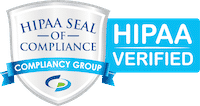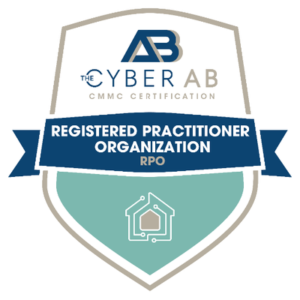
IT Courses
Training is in our DNA.
CyNtell provides a training solution consisting of four main services: Training Management, Course Development, Instructional Delivery, and Security Awareness. Our training team has over 50 cumulative years of training experience.
Disciplined Agile Scrum Master (DASM)
Disciplined Agile Scrum Master (DASM) will help you understand all the benefits of agile, and make it work for you and your organization. DASM equips you to successfully lead agile teams, thereby future-proofing your career in a world in which agile is fast becoming the way forward.
PMI Agile Certified Practitioner (PMI-ACP)
The PMI-ACP® certification verifies a practitioner’s ability to understand and apply Agile principles and practices. The instructor explains the best practices of Agile which is an iterative and incremental software developmental methodology that helps organizations to become more flexible and deliver workable software in a shorter span of time.
PMI Risk Management Professional (PMI-RMP)
Through expert lecture and class exercises, this course prepares the student to take on or improve the risk management specialist role on his or her organization’s project teams. In addition to preparing the student for the PMI-RMP® certification exam, this course teaches basic project management skills and improves the student’s expertise in minimizing risk to employers.
Project Management Professional
The 5-day instructor led course is specifically designed to provide students with the proven, practical body of project management knowledge and skills that are needed to demonstrate project management mastery on the job. Additionally, this course can be a significant part of your preparation for the Project Management Professional (PMP)® Certification Exam. The skills and knowledge you gain in this course will help you avoid making costly mistakes and increase your competitive edge in the project management profession.
Microsoft Certified: Azure for SAP Workloads Specialty
This course teaches IT Professionals experienced in SAP solutions how to leverage Azure resources that include deployment and configuration of virtual machines, virtual networks, storage accounts, and Azure AD that includes implementing and managing hybrid identities.
Microsoft Certified: Azure Stack Hub Operator Associate
This course teaches Azure administrators and Azure Stack Hub operators how to plan, deploy, package, update, and maintain the Azure Stack Hub infrastructure. Lessons include deploying Azure Stack Hub, managing the Azure Stack Hub Marketplace, offering App Services and Event Hub resource providers, managing Azure Stack Hub registration, and maintaining system health.
Microsoft Certified: Windows Virtual Desktop Specialty
This course teaches Azure administrators how to plan, deliver, and manage virtual desktop experiences and remote apps, for any device, on Azure.
Microsoft Certified: Azure Administrator Associate
This 4-day instructor-led course teaches IT Professionals how to manage their Azure subscriptions, secure identities, administer the infrastructure, configure virtual networking, connect Azure and on-premises sites, manage network traffic, implement storage solutions, create and scale virtual machines, implement web apps and containers, back up and share data, and monitor your solution.
Microsoft Certified: Azure Security Engineer Associate
This 4-day instructor-led course will provide the knowledge and skills needed to implement security controls, maintain the security posture, and identify and remediate vulnerabilities by using a variety of security tools. The course covers scripting and automation, virtualization, and cloud N-tier architecture.
Microsoft Certified: Azure IoT Developer Specialty
This 4-day instructor-led course provides students with the skills and knowledge required to successfully create and maintain the cloud and edge portions of an Azure IoT solution. The course includes full coverage of the core Azure IoT services such as IoT Hub, Device Provisioning Services, Azure Stream Analytics, Time Series Insights, and more. In addition to the focus on Azure PaaS services, the course includes sections on IoT Edge, device management, monitoring and troubleshooting, security concerns, and Azure IoT Central.
Microsoft Certified: Azure Developer Associate
This 5-day instructor-led course teaches developers how to create end-to-end solutions in Microsoft Azure. Students will learn how to implement Azure compute solutions, create Azure Functions, implement and manage web apps, develop solutions utilizing Azure storage, implement authentication and authorization, and secure their solutions by using KeyVault and Managed Identities. Students will also learn how to connect to and consume Azure services and third-party services, and include event- and message-based models in their solutions. The course also covers monitoring, troubleshooting, and optimizing Azure solutions.
Microsoft Certified: Azure AI Engineer Associate
This 3-day instructor-led course teaches you the necessary knowledge for designing Azure AI solution by building a customer support chat Bot using artificial intelligence from the Microsoft Azure platform including language understanding and pre-built AI functionality in the Azure Cognitive Services.
Microsoft Certified: Azure Database Administrator Associate
This course provides students with the knowledge and skills to administer a SQL Server database infrastructure for cloud, on-premises and hybrid relational databases and who work with the Microsoft PaaS relational database offerings. Additionally, it will be of use to individuals who develop applications that deliver content from SQL-based relational databases.
Microsoft Certified: Azure Data Scientist Associate
Learn how to operate machine learning solutions at cloud scale using Azure Machine Learning. This course teaches you to leverage your existing knowledge of Python and machine learning to manage data ingestion and preparation, model training and deployment, and machine learning solution monitoring in Microsoft Azure.
Microsoft Certified: Azure Data Engineer Associate
In this course, the student will learn about the data engineering as it pertains to working with batch and real-time analytical solutions using Azure data platform technologies. Students will begin by understanding the core compute and storage technologies that are used to build an analytical solution. The students will learn how to interactively explore data stored in files in a data lake. They will learn the various ingestion techniques that can be used to load data using the Apache Spark capability found in Azure Synapse Analytics or Azure Databricks, or how to ingest using Azure Data Factory or Azure Synapse pipelines. The students will also learn the various ways they can transform the data using the same technologies that is used to ingest data. They will understand the importance of implementing security to ensure that the data is protected at rest or in transit. The student will then show how to create a real-time analytical system to create real-time analytical solutions.
Microsoft Certified: Azure AI Fundamentals
“In this course, students will gain foundational knowledge of core data concepts and how they are implemented using Microsoft Azure data services. Students will identify and describe core data concepts such as relational, non-relational, big data, and analytics, and explore how this technology is implemented with Microsoft Azure. The students will explore relational data offerings, provisioning and deploying relational databases, and querying relational data. They will explore non-relational data offerings, provisioning and deploying non-relational databases, and non-relational data stores with Microsoft Azure. Students will explore the processing options available for building data analytics solutions in Azure. They will explore Azure Synapse Analytics, Azure Databricks, and Azure HDInsight. Students will learn what Power BI is, including its building blocks and how they work together.”
Microsoft Certified: Azure Data Fundamentals
“In this course, students will gain foundational knowledge of core data concepts and how they are implemented using Microsoft Azure data services. Students will identify and describe core data concepts such as relational, non-relational, big data, and analytics, and explore how this technology is implemented with Microsoft Azure. The students will explore relational data offerings, provisioning and deploying relational databases, and querying relational data. They will explore non-relational data offerings, provisioning and deploying non-relational databases, and non-relational data stores with Microsoft Azure. Students will explore the processing options available for building data analytics solutions in Azure. They will explore Azure Synapse Analytics, Azure Databricks, and Azure HDInsight. Students will learn what Power BI is, including its building blocks and how they work together.”
Microsoft Certified: Azure Fundamentals
This 2-day instructor-led course will provide foundational-level knowledge of cloud services and how those services are provided with Microsoft Azure. The course can be taken as an optional first step in learning about cloud services and Microsoft Azure, before taking further Microsoft Azure or Microsoft cloud services courses.
Microsoft 365 Certified: Enterprise Administrator Expert
This certification includes 2 courses: Microsoft 100T00 Idenity and Services and MS 101T00 Mobility and Security. Each course is 5 days.
Microsoft 365 Certified: Developer Associate
This course covers five central elements of Microsoft 365 platform – implementing Microsoft Identity, working with Microsoft Graph, extending and customizing SharePoint, extending Teams, and extending Office.
Microsoft 365 Certified: Messaging Administrator Associate
This course examines the key elements of Microsoft 365 messaging administration, including message transport and mail flow, messaging security, hygiene, and compliance, messaging infrastructure, and hybrid messaging. This course is designed for IT Professionals who deploy and manage the messaging infrastructure for Microsoft 365 in their organization
Microsoft 365 Certified: Security Administrator Associate
This 4-day instructor-led Microsoft 365 Security Administration training course will teach you how to secure user access to your organization’s resources. The course covers user password protection, multi-factor authentication, how to enable Azure Identity Protection, how to setup and use Azure AD Connect, and introduces you to conditional access in Microsoft 365. You will learn about threat protection technologies that help protect your Microsoft 365 environment. Specifically, you will learn about threat vectors and Microsoft’s security solutions to mitigate threats. You will learn about Secure Score, Exchange Online protection, Azure Advanced Threat Protection, Windows Defender Advanced Threat Protection, and threat management. In the course you will learn about information protection technologies that help secure your Microsoft 365 environment. The course discusses information rights managed content, message encryption, as well as labels, policies and rules that support data loss prevention and information protection. Lastly, you will learn about archiving and retention in Microsoft 365 as well as data governance and how to conduct content searches and investigations. This course covers data retention policies and tags, in-place records management for SharePoint, email retention, and how to conduct content searches that support eDiscovery investigations.
Microsoft 365 Certified: Teams Administrator Associate
“This 4-day instructor-led course is designed for persons who are aspiring to the Microsoft 365 Teams Admin role. Microsoft Teams admins configure, deploy, and manage Office 365 workloads for Microsoft Teams that focus on efficient and effective collaboration and communication in an enterprise environment. This course covers six central elements – Microsoft Teams overview, implementing governance, security and compliance for Microsoft Teams, preparing the environment for a Microsoft Teams deployment, deploying and managing teams, managing collaboration and managing communication in Microsoft Teams.”
Microsoft 365 Certified: Modern Desktop Administrator Associate
In this course, students will learn how to plan and implement an operating system deployment strategy using modern deployment methods, as well as how to implement an update strategy. Students will be introduced to key components of modern management and co-management strategies. This course also covers what it takes to incorporate Microsoft Intune into your organization. Students will also learn about methods for deployment and management of apps and browser-based applications. Students will be introduced to the key concepts of security in modern management including authentication, identities, access, and compliance policies. Students will be introduced to technologies such Azure Active Directory, Azure Information Protection and Windows Defender Advanced Threat Protection, as well as how to leverage them to protect devices and data.
Microsoft 365 Certified: Fundamentals
This course provides foundational knowledge on the considerations and benefits of adopting cloud services and the Software as a Service (SaaS) cloud model, with a specific focus on Microsoft 365 cloud service offerings. You will begin by learning about cloud fundamentals, including an overview of cloud computing and specifically Microsoft cloud services. You will be introduced to Microsoft Azure, and you will examine the differences between Microsoft 365 and Office 365. You will then perform an in-depth review of Microsoft 365, including a comparison of Microsoft on-premises services versus Microsoft 365 cloud services, a review of enterprise mobility in Microsoft 365, and an analysis of how Microsoft 365 services provide collaboration. The course then analyzes how security, compliance, privacy, and trust are handled in Microsoft 365, and it concludes with a review of Microsoft 365 subscriptions, licenses, billing, and support.
Excel (Level 1, 2, and 3 as appropriate)
“L1-Our Excel 2019 Level 1 courseware provides the basic concepts and skills students need to start being productive with Microsoft Excel 2019: how to create, save, share, and print worksheets that contain various kinds of calculations and formatting.
L2- Excel 2019 Level 2 builds on the basic concepts and skills of our Level 1 course to provide more advanced tools for analysis and presentation of complex, realistic data in Microsoft Excel 2019: how to manage complex workbooks, build more complex functions, use data analysis tools, make an impact with powerful chart and presentation features, and collaborate with other users. L3-Excel 2019 Level 3 builds on the concepts and skills of our Level 1 and Level 2 courses to provide advanced tools for solving real-world problems in Microsoft Excel 2019: lookup and decision-making functions, auditing and error-handling, array functions, date and text functions, importing and exporting, what-if-analysis, and macros”
Project (Level 1, 2, and 3 as appropriate)
“Project 2019 Level 1-
This course addresses the features of Microsoft’s Project application, which is specifically designed to address the needs of project managers in corporate environments.
Project 2019 Level 2-
This course addresses the features of Microsoft’s Project application, which is specifically designed to address the needs of project managers in corporate environments.”
PowerPoint (Level 1, 2, and 3 as appropriate)
“Powerpoint 2016 Level 1 – owerPoint 2016 Level 1 provides the basic concepts and skills that you need to start being productive with Microsoft PowerPoint 2016: How to create, navigate, format, and customize PowerPoint presentations.
Powerpoint 2016 Level 2- PowerPoint 2016 Level 2 provides advanced concepts and skills for PowerPoint 2016 power users: how to use advanced formatting features, and animation and transition techniques, add and format media, track corrections and work with multiple presentations, create custom slide shows, and work with security and sharing options.”
ITIL Strategist Direct, Plan and Improve
“Create Deliver and Support covers the integration of a number of proven areas of what we might know as ‘IT’ areas of work – from design, to build and test, launch, run and support of products and services. These areas are all central elements in development and operations of technology systems and services that may be familiar. However often these areas have not been built, run and integrated as seamlessly as needed to fully deliver optimum value.”
ITIL Specialist High-velocity IT
This course explores the ways in which digital organizations and digital operating models function in high velocity environments. It will help aspiring organizations, to operate in a similar way to successful digitally-native organizations. The course includes the use of working practices such as Agile and Lean, and technical practices and technologies such as Cloud, Automation, and Automatic Testing, focusing on rapid delivery of products & services to obtain maximum value.
ITIL Specialist Drive Stakeholder Value
This course covers key topics such as SLA design, multi-supplier management, communication, relationship management, CX and UX design, customer journey mapping, and more. It will provide candidates with the tools to increase stakeholder satisfaction which is integral to business success in the current competitive landscape.
ITIL Specialist Create, Deliver and Support
Create Deliver and Support covers the integration of a number of proven areas of what we might know as ‘IT’ areas of work – from design, to build and test, launch, run and support of products and services. These areas are all central elements in development and operations of technology systems and services that may be familiar. However often these areas have not been built, run and integrated as seamlessly as needed to fully deliver optimum value.
ITIL Leader Digital and IT Strategy
This course is designed to take practitioners and organizations on a digital strategy journey. Its iterative, eight-step model moves from “vision” through to “actions” and is about creating sustainable, digital momentum; this fulfils the enterprise’s evolution into a digital enterprise and enables business value co-creation. The guidance also highlights four key capabilities to develop a holistic, digital capability framework: digital leadership, managing innovation and emerging technologies, risk management and structuring a digital enterprise.
ITIL Foundation
“This course prepares students for the ITIL® 4 Foundation certification exam. The instructor covers the formal introduction to managing the IT service lifecycle and how to use the ITIL® Foundation and ITIL verbiage, concepts for service management processes.
These disciplines embody the service framework lifecycle for further enhancement in business and IT alignment to evaluate ROI, business value, and resolve operational necessities with IT. Throughout the course the students come to understand the ITIL® best practices. ”
AWS Certified Security (Specialty)
The AWS Certified Security Specialty exam validates technical skills and experience in securing and hardening workloads and architectures on the AWS platform.
AWS Certified Advanced Networking (Specialty)
The AWS Certified Advanced Networking – Specialty exam validates advanced technical skills and experience designing and implementing AWS and hybrid IT network architectures at scale. As a networking specialist, you will design a secure, scalable, and highly available network infrastructure on AWS while addressing requirements like network security, hybrid IT connectivity, network integration with other AWS services, routing techniques, and network troubleshooting.
AWS Certified Machine Learning (Specialty)
The AWS Certified Machine Learning – Specialty exam validates your ability to design, implement, deploy, and maintain Machine Learning (ML) solutions for given business problems. Join this half-day, intermediate-level training to learn how to prepare for the exam by exploring the exam’s topic areas including data engineering, exploratory data analysis, modeling, and machine learning implementation and operations. The course reviews how to interpret exam questions in each topic area and teaches you how to apply the concepts being tested so that you can more easily eliminate incorrect responses.
AWS Certified Database (Specialty)
This course prepares you to take the AWS Certified Database – Specialty exam, which validates your ability to design, implement, deploy, and maintain database solutions.
AWS Certified Data Analytics (Specialty)
This course prepares you to take the AWS Certified Data Analytics – Specialty exam, which validates your ability to design, implement, deploy, and maintain data analytic solutions.
AWS Certified DevOps Engineer (Professional)
This 3-day instructor-led AWS course will address common DevOps patterns to develop, deploy, and maintain applications on the AWS platform. The course will cover various use cases for varying computing environments ranging from small to enterprise organizations with relation to the usage of core DevOps methodology.
AWS Certified Developer (Associate)
This 3-day instructor-led AWS course will address how to develop secure and scalable cloud applications with the AWS SDK. Additionally, students will get hands-on experience interacting with AWS with code while learning about best practices, key concepts, troubleshooting guidelines.
AWS Certified SysOps Administrator (Associate)
System Operations on AWS is designed to teach those in a Systems Administrator or Developer Operations (DevOps) role how to create automatable and repeatable deployments of networks and systems on the AWS platform. The course covers the specific AWS features and tools related to configuration and deployment, as well as common techniques used throughout the industry for configuring and deploying systems
AWS Certified Solutions Architect (Professional)
This five-day instructor-led AWS certification course is intended for IT professionals with AWS – Certified Solutions Architect – Associate certications. This training focuses on the skills and knowledge necessary to design systems and distributed applications on the Amazon Web Services (AWS) platform.
AWS Certified Solutions Architect (Associate)
The AWS Certified Solutions Architect -Associate demonstrates your AWS technical skills. Associate is the first step in AWS to becoming an AWS expert. AWS CSA – Professional training can be scheduled onsite for groups of 5 or more.
AWS Certified Cloud Practitioner
The fundamental-level full day course is intended for individuals who seek an overall understanding of the AWS Cloud, independent of specific technical roles. It provides a detailed overview of cloud concepts, AWS services, security, architecture, pricing, and support. It includes lab exercises reinforcing some of the core concepts of the lecture. This course also helps you prepare for the AWS Certified Cloud Practitioner exam. This course includes AWS Training Exclusives.
GIAC Systems and Network Auditor (GSNA)
AUD507 gives you the three things needed to measure, report on, and manage risk in the enterprise: tools, techniques and thought processes. Auditors, managers, security and compliance professionals will get the mix of hands-on experience and classroom discussion they need to better protect their organizations. You’ll learn to audit Windows, Linux, containers, web technologies, virtualization and networks.
GIAC Security Leadership Certificate (GSLC)
MGT512 empowers student to become effective security managers and quickly grasp critical information security issues and terminology, with a focus on security frameworks, computer/network security, vulnerability management, cryptography, data protection, security awareness, application security, DevSecOps, cloud security, security operations.
GIAC Security Essentials Certification (GSEC)
Whether you are new to information security or a seasoned practitioner with a specialized focus, SEC401 will provide the essential information security skills and techniques you need to protect and secure your critical information and technology assets, whether on-premise or in the cloud. SEC401 will also show you how to directly apply the concept learned into a winning defensive strategy, all in the terms of the modern adversary. This is how we fight; this is how we win!
GIAC Global Industrial Cyber Security Professional (GICSP)
ICS410: ICS/SCADA Security Essentials provides a foundational set of standardized skills and knowledge for industrial cybersecurity professionals. The course is designed to ensure that the workforce involved in supporting and defending industrial control systems is trained to keep the operational environment safe, secure, and resilient against current and emerging cyber threats.
GIAC Certified Incident Handler (GCIH)
SEC504 will prepare you to turn the tables on computer attackers. This course addresses the latest cutting-edge insidious attack vectors, the “oldie-but-goodie” attacks that are still so prevalent, and everything in between. You will learn the most modern, step-by-step processes for incident response; how attackers undermine systems so you can prepare, detect, and respond to them; and how to discover holes in your system before the bad guys do. Instead of merely teaching you a few hack attack tricks, this course will give you hands-on experience, equip you with a comprehensive incident handling plan, and help you understand the legal issues associated with responding to computer attacks, including employee monitoring, working with law enforcement, and handling evidence.
GIAC Certified Forensic Analyst (GCFA)
Threat hunting and Incident response tactics and procedures have evolved rapidly over the past several years. Your team can no longer afford to use antiquated incident response and threat hunting techniques that fail to properly identify compromised systems. The key is to constantly look for attacks that get past security systems, and to catch intrusions in progress, rather than after attackers have completed their objectives and done worse damage to the organization. For the incident responder, this process is known as ” threat hunting “. FOR508 teaches advanced skills to hunt, identify, counter, and recover from a wide range of threats within enterprise networks, including APT nation-state adversaries, organized crime syndicates, and hactivists.
GIAC Certified Enterprise Defender (GCED)
“Become an Enterprise Defender! Enhance your knowledge and skills in the specific areas of network architecture defense, penetration testing, security operations, digital forensics and incident response, and malware analysis. SEC501: Advanced Security Essentials – Enterprise Defender is an essential course for members of security teams of all sizes. That includes smaller teams where you wear several (or all) hats and need a robust understanding of many facets of cybersecurity, and larger teams where your role is more focused, and gaining skills in additional areas adds to your flexibility and opportunities. This course concentrates on showing you how to examine the traffic that is flowing on your networks, look for indications of an attack, and perform penetration testing and vulnerability analysis against your enterprise to identify problems and issues before a compromise occurs. When a compromise does occur – and it will – you’ll be able to eradicate it because you will have already scoped your adversaries activities by collecting digital artifacts of their actions and analyzing malware they have installed on your systems. That done, you can then undertake the recovery and remediation steps that would have been pointless if your adversary had persisted on your network.
”
GIAC Certified Intrusion Analyst (GIAC)
SEC503: Intrusion Detection In-Depth delivers the technical knowledge, insight, and hands-on training you need to defend your network with confidence. You will learn about the underlying theory of TCP/IP and the most used application protocols, such as HTTP, so that you can intelligently examine network traffic for signs of an intrusion.
Certified Information Systems Auditor (CISA)
This 5-day, instructor led course offers complete, up-to-date coverage of all the material included on the latest release of the Certified Information Systems Auditor exam. It covers all five exam domains developed by ISACA®. The course also includes exam tips, practice exam questions, and in-depth explanations. Designed to help you pass the CISA exam with ease, this comprehensive course also serves as essential training for new and established IS auditors.
Certified Information Security Manager (CISM)
This 5-day instructor led training provides students with the right skills and judgment capabilities to effectively carry out the IS audit process. This training course will thoroughly prepare professionals to take the CISM exam and attain certification, which is necessary for advancement within the Information Systems audit, control and security professions. CISM certification is a specialized management-focused accreditation and differs from alternative security certifications in that it is specifically geared towards the IT professional who manages designs, oversees and assesses an enterprise’s information security.
System Security Certified Practitioner (SSCP)
Our 3- day instructor-led SSCP – Systems Security and Certified Practitioner training course Online will prepare students for the SSCP certification examination. Students will review exam objectives and participate in instructor led lecture, activities and exam review.
Information Systems Security Management Professional (ISSMP)
This ISC2® training course is available online and in-person. The five-day instructor-led training experience prepares attendees for the CISSP-ISSMP certification exam. This concentration focuses on managerial skills such as project and risk management, managing Business Continuity Planning programs, and establishing security awareness programs. CISSP-ISSMP professionals establish, present, and govern information security policies and procedures to support business goals.
Information Systems Security Engineering Professional (ISSEP)
This ISC2® training course is available online and in-person. The five-day instructor-led training experience prepares attendees for the CISSP-ISSEP certification exam. This concentration is specifically developed with assistance from the U.S. National Security Agency (NSA) for systems security engineers. The skills attained equip professionals with the right knowledge to implement security throughout applications, projects, business processes, and all organizational systems effectively.
Information Systems Security Architecture Professional (ISSAP)
This ISC2® training course is available online and in-person. The five-day instructor-led training experience prepares attendees for the CISSP-ISSAP certification exam. Candidates who attain this certification often have responsibilities ranging from C-suite to upper management in the implementation of security programs. Although their roles are intimately aligned with technology,
Certification Authorization Professional (CAP)
Federal Risk Management Framework (RMF) 2.0 Implementation with CAP Exam Review focuses on the Risk Management Framework prescribed by NIST Standards. This course can also be used to aid in preparation for the ISC2 Certified Authorization Professional (CAP) exam, as it covers 100% of the CAP exam requirements.
Certified Secure Software Lifecycle Professional (CSSLP)
Our 5-day, instructor-led CSSLP (Certified Secure Software Lifecycle Professional) training and certification course is aimed at software development lifecycle professionals who are responsible for application security. It covers eight domains: secure software concepts, secure software requirements, secure software design, secure software implementation/programming, secure software testing, secure software lifecycle management, software deployment operations and maintained, and supply chain and software acquisition. This course will fully prepare you for the (ISC)2 ® CSSLP® Certification exam.
Certified Information Systems Security Professional (CISSP)
This course provides the knowledge needed to implement security solutions within an enterprise policy framework, using a vendor-neutral format. This includes security and risk management programs, organizational policies and training, asset security, enterprise security architecture and engineering, network and communication security, identity and access management, security assessments and testing, operational security and secure software development. This course maps to the (ISC)² CISSP certification exam. Objective coverage is marked throughout the course.
Certified Network Defender (CND)
“The EC-Council CND certification is a vendor-neutral network security certification program. This skills-based course centers around job-task analysis and cybersecurity education framework as presented by NICE. The goal of this certification program is to prepare network administrators on network security technologies and operations to attain Defense-in-Depth network security preparedness.
”
Computer Hacking Forensics Investigator (CHFI)
The Computer Hacking Forensic Investigator (CHFI) certification training course is offered both online and in-person. This 5-day training experience will prepare students with the knowledge and hands-on skill set necessary to pass the CHFI certification exam on the last day.
Certified Chief Information Security Officer (CCISO)
The CCISO certification course is designed to teach and verify executive security professionals who aspire to become Chief Information Security Officers (CISOs). The training addresses the five core domains required to master for the certification, which includes the management of information security (IS) governance programs and best practices to implement and maintain as a security executive within an enterprise environment.
Certified Ethical Hacker (CEH)
“This 5-day instructor led class provides an in-depth understanding of ethical hacking phases, various attack vectors, and preventative countermeasures. It teaches students how hackers think and act maliciously to be better positioned to setup security infrastructure and defend against future attacks. An understanding of system weaknesses and vulnerabilities helps organizations strengthen their system security controls to minimize the risk of an incident.
CEH was built to incorporate a hands-on environment and systematic process across each ethical hacking domain and methodology, giving you the opportunity to work towards proving the required knowledge and skills needed to achieve the CEH credential. Students will be exposed to an entirely different posture toward the responsibilities and measures required to be secure. ”
Certified Wireless Technology Specialist (CWTS)
The CWTS certification will validate the knowledge of enterprise WLAN sales as well as support professionals who need to be familiar and confident with the terminology and basic functionality used within enterprise 802.11 wireless networks.
Certified Wireless Security Professional (CWSP)
The Certified Wireless Security Professional certification is the professional level wireless LAN certification for the CWNP Program. The CWSP certification will assist in advancing your career by helping to ensure that you have the skills needed to successfully secure enterprise Wi-Fi networks from hackers. This certification allows you to do all of this regardless of which brand of Wi-Fi gear your organization uses.
Certified Wireless Network Administrator (CWNA)
The CWNA certification is the foundation level enterprise Wi-Fi certification for the CWNP Program, and CWNA is required for your CWSP and CWNE certifications. Your CWNA certification will get you started in your wireless career by ensuring you have the skills to successfully survey, install, and administer enterprise Wi-Fi networks.
Cisco Certified Network Professional-Security (CCNP-Security)
“The CCNP Security certification program prepares you for today’s professional-level job roles in
security technologies. One of the industry’s most respected certifications, CCNP validates the core
knowledge you need while providing the flexibility to choose a focus area.
To earn CCNP Security, you pass two exams: a core exam and a concentration exam of your choice.”
Cisco Certified Network Associate-Security (CCNA-Security)
The Implementing and Administering Cisco Solutions (CCNA) v1.0 course gives you a broad range of fundamental knowledge for all IT careers. Through a combination of lecture and hands-on labs, you will learn how to install, operate, configure, and verify basic IPv4 and IPv6 networks. The course covers configuring network components such as switches, routers, and wireless LAN controllers; managing network devices; and identifying basic security threats. The course also gives you a foundation in network programmability, automation, and software-defined networking.
CyberSec First Responder (CFR)
This (5) fiveday course covers network defense and incident response methods, tactics, and procedures are taught in alignment with industry frameworks such as NIST 800-61 r.2 (Computer Security Incident Handling), US-CERT’s NCISP (National Cyber Incident Response Plan), and Presidential Policy Directive (PPD) 41 on Cyber Incident Coordination Policy. It is ideal for candidates who have been tasked with the responsibility of monitoring and detecting security incidents in information systems and networks, and for executing standardized responses to such incidents. The course introduces tools, tactics, and procedures to manage cybersecurity risks, identify various types of common threats, evaluate the organization’s security, collect and analyze cybersecurity intelligence and remediation/report incidents as they occur. This course provides a comprehensive methodology for individuals responsible for defending the cybersecurity of their organization.
CompTIA PenTest+
This course provides the knowledge needed to plan and perform penetration tests and other security engagements, using a vendor-neutral format. This includes planning engagements, performing reconnaissance to find vulnerabilities in a target organization, exploiting vulnerable targets, and creating followup reports. This course maps to the CompTIA PenTest+ certification exam (PT0-001). Objective coverage is marked throughout the course.
CompTIA Cybersecurity Analyst (CySA+)
This course provides the basic knowledge needed to analyze, monitor, and protect cybersecurity resources in a vendor-neutral format. It includes threat intelligence, vulnerability management, network reconnaissance and monitoring, secure policies and procedures, host and network security, identity management systems, and incident response. This course maps to the CompTIA Cybersecurity+ certification exam CSO-002. Objective coverage is marked throughout the course.
CompTIA Network+
Our CompTIA Network+ N10-007 courseware covers the concepts and skills needed to plan, install, maintain, and troubleshoot modern networks in a vendor-neutral format. This includes physical network components and technologies, logical structures, common protocols, and network security. This course maps to the CompTIA Network+ N10-007 certification exam. Exam objective coverage is marked throughout the course, and there is an extensive glossary appendix.
CompTIA Advanced Security Practitioner (CASP)
CompTIA Advanced Security Practitioner (CASP) CAS-003 course provides the knowledge needed to implement security solutions within an enterprise policy framework, using a vendor-neutral format. This includes risk and vulnerability management programs, organizational policies and training, applied cryptography, system security, network security, identity management, and incident response. This course maps to the CompTIA CASP certification exam. Objective coverage is marked throughout the course.
CompTIA Security+
CompTIA Security+ Certification SY0-601 provides the basic knowledge needed to plan, implement, and maintain information security in a vendor-neutral format. This includes risk management, host and network security, authentication and access control systems, cryptography, and organizational security. This course maps to the CompTIA Security+ certification exam. Objective coverage is marked throughout the course.
CompTIA Cloud+
CompTIA Cloud+ CV0-002 provides the basic knowledge and skills needed to analyze, select, monitor, and protect cloud resources in a vendor-neutral format; this includes vulnerability management, network reconnaissance and monitoring, connecting networks to clouds, cloud migration, secure policies and procedures, host and network security, identity management systems, and incident response. This course maps to the CompTIA Cloud+ CV0-002 certification exam. Objective coverage is marked throughout the course.
CompTIA A+
“This instructor-led course provides the basic knowledge needed to install, configure, and support computer hardware and operating systems. This includes:
Assembling components based on customer requirements
Installing, configuring and maintaining devices, PCs, and software for end users
Understanding the basics of networking and security/forensics
Properly and safely diagnosing, resolving, and documenting common hardware and software issues.”






